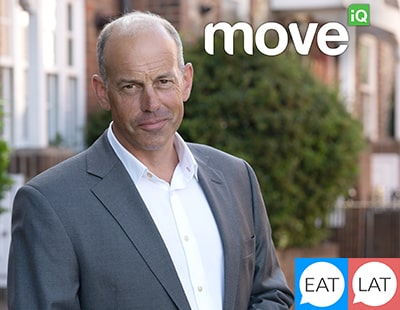Increasingly so, I would suggest that consumers see the true value of an agent as someone who can use their expertise to guide them through the whole process as smoothly as possible.
Your local reputation and recent sales figures are of course still important factors, but the modern consumer is certainly more information and resource-led than ever before.
By providing clients with the advice and information they require, you can keep your brand 'front of mind' and increase your chances of becoming someone's go-to property expert for life.
So, what are the consumer knowledge gaps that agents can help to fill? Here at Move iQ, we regularly survey our audience to find out which areas of the process consumers understand the least.
Here's what we found...
1. The difference between exchange and completion
Knowing the difference between the two is of course second nature to those of us working in the industry, but for many consumers it could be a grey area.
Particularly for inexperienced movers, there will be plenty of terminology for them to get their head around. As professionals working with these terms every day, we will use them frequently without always thinking about whether our clients understand what we really mean.
If your clients are confused about the difference between exchange and completion, this could cause you unnecessary hassle towards the backend of a transaction.
By ascertaining your client's knowledge of the moving process from the outset, you can make sure things go more smoothly during crunch time.
If you're working with inexperienced consumers, sharing glossaries and jargon busters can be a good way of ironing out any initial confusion, while one-to-one communication will be crucial later down the line.
2. The long-term implications of freehold vs. leasehold
The leasehold scandal is a 'hot button' for many consumers and industry professionals who have been affected by the issues associated with it.
There have been well-documented steps from the government to improve the situation, including controlling ground rents and banning the sale of new build leasehold properties.
The fact of the matter is, however, that for many consumers who have fallen foul of the leasehold system, their lack of knowledge at the beginning of the purchasing process has cost them in the long-term.
In the future, there may be mandatory measures for details on freehold/leasehold to be included on all property listings. In the meantime, agents should do everything they can to be transparent with consumers on the tenure of every property.
What's more, explaining to consumers what purchasing a freehold or leasehold means for them, will contribute towards improving agents' reputation with the general public. You can see our buyer’s guide on the differences between freehold and leasehold here.
3. How to negotiate on house price
You will all have come across consumers who seem to know everything about house prices, but that doesn't mean the information you provide should be ignored.
In fact, it's quite the opposite. In an age where consumers can find the latest average asking prices and sold prices in any given area in seconds, an agent's knowledge of the vendor's expectations and local market conditions could be crucial.
And, just because a buyer has a good handle on average house prices doesn't mean they have the skills to negotiate an offer successfully.
You're called negotiators for a reason and explaining to sellers the value you can add with your skills is vital, while helping buyers to understand the pricing requirements to getting a specific deal done could also be hugely beneficial.
On the flipside, one thing that I know that very much does upset buyers and sellers is when a relatively junior agent (who probably doesn’t own his/her house) starts talking about large sums of money in a blasé way – ‘it’s only £10,000’ and so on.
How agents discuss the sensitive issue of finances is central to the success of a transaction.
4. How to view a property
Various studies have shown that people make up their mind on a home in a matter of seconds. And while I believe in the power of 'getting that feeling', it's important that from this point of interest properties are viewed ‘properly’.
If someone is taken by a property on a viewing, they then need to drill down and find out if it's a feasible purchase for them.
Of course agents will be looking to get the deal done, but guiding consumers on what they should be looking for will only help your cause in the long-run.
We always recommend consumers use our viewing checklists to ensure they stay focused during a viewing. In addition, you could be proactive and have a candid conversation with viewers at the end of their appointment to ask if they considered certain factors of the property while looking round. Resources like property reports can also help consumers to determine whether they've found the right property.
When it comes to agents, transparency is a big dealbreaker for consumers. For example, we recently asked over 400 people whether they would expect an estate agent to tell them about any problems when they view a property – almost 77% of respondents said yes.
With this in mind, educating consumers about what they should be looking for on viewings needn't harm your chances of reaching a successful outcome for all parties.
What else do consumers want to know about?
Some of the other parts of the process that users of our website understood the least included how to sell your home and make the best impression, the importance of a property survey (although this isn’t directly part of the agent’s role) and Help to Buy schemes for first-time buyers.
Our research shows that consumers’ confusions are varied and can be about any part of their moving journey. As property experts, we should never assume a consumer knows something about buying or selling a home, no matter how basic.
In the age of information at our fingertips, agents should be looking to provide consumers with as many useful resources as possible. This can help to build your profile as a brand that adds value and educates its clients.
*Phil Spencer is a presenter, author, businessman and property investor. In 2018, he launched Move iQ, an online resource designed to assist consumers wanting access to trustworthy and objective advice, data and opinions from which to base their property moving plans.















%20-%20IMAGE%20Client%20Accounting%20%E2%80%93%20what%20are%20your%20options.jpg)


.png)
.png)
.png)
%20(002).png)






%20(002).jpg)












Join the conversation
Jump to latest comment and add your reply
All competence based traits. In themselves admirable, but vendors first look for character. Do I know, like and trust this agent? Very few agents make the effort to be transparent, so vendors are left to guess the answer. Perhaps that's why they so often choose wrongly?
People have been lied to and duped by developers and their selected conveyors ! Some like myself sold a non toxic leasehold and bought a toxic leasehold where the vast differences in both leaseholds were very cunningly hidden and not explained ! This is what we thought we were paying tff Hf e conveyor for but they were more on the side of the developer because they were getting lots of work from them . Let’s face it they are not going to tell you about a dodgy onerous contract in case you withdraw from the purchase then they lose their fees it’s a complete scam with new builds and if everyone was transparent I doubt they would sell any houses with such toxic contracts
Can't really disagree with Phil. But of course consumers dont really understand any aspects of the conveyancing process.
At the risk of public ridicule, a couple of years back I dreamt up a board game idea;
Completion!
Square board with triangular bit at top (basically shaped like a house).
As you travel around the square section of the board you need to land on squares in order to collect five cards:
• Deposit
• Clear Searches
• Mortgage Offer
• Clear Enquiries
• Clear Title
As you land on certain squares you can pick up a card from one of these five piles. If you are lucky it will say you have one of the above. However, the piles will contain cards like:
• You have not proved source of funds, no deposit
• A new road proposal is showing on your Local search
• Your lender wants a timber and damp report carried out
• The seller has indicated that there was a neighbour dispute
• The title deeds do not contain a right of way over the shared access
Basically, you continue going around the square part until you collect your five cards. There may be other interesting squares:
• Your Aunt has passed away and left you £30,000.00. You have your deposit
• The issue with your searches has been resolved. You have your clear searches
• Your lender has made your mortgage offer unconditional. You now have your mortgage offer
• The estate agent has successfully negotiated a reduction in price, you can proceed
• The unsatisfactory reply to your enquiry has been resolved. You have your clear enquiries
• The title issue has been resolved by your property lawyer. You have a clear title
I have also got something in the back of my mind about adding in a reference to gazumping or gazundering.
When you have all five clear cards, you can exchange contracts and move on to the triangular part of the board. Which in short, means you need to throw a four in order to move to completion!
The idea is to make understanding the home buying and selling process (to a degree) a fun exercise.
Thoughts? Worth trying to develop? Any ideas how?
Love the idea! A lot of people go down the crowdfunding route now to take new games to market. There is an avid community of board gamers who would be the ones to try and raise awareness and support, particularly the ones with active websites, YouTube channels, etc.
If you do try and get it going, we'd promote it (and buy it!) :)
Fantastic idea Rob – I’d play it.
And finally, a chain in which you pick your own conveyancers. Ah, paradise - but we'd get to completion too quickly :o)
But it would not be true to life without say several ‘lose a turn’ piles:
a. your conveyancer did not……..so lose a turn
b. your surveyor did not….. so lose a turn
c. the estate agent did not….. so lose a turn
d. the mortgage adviser did not…. so lose a turn
Realistic, educational and fun.
Get it developed, it'd be hilarious, and could really sell - happy to help fund Rob (seriously)
Please login to comment